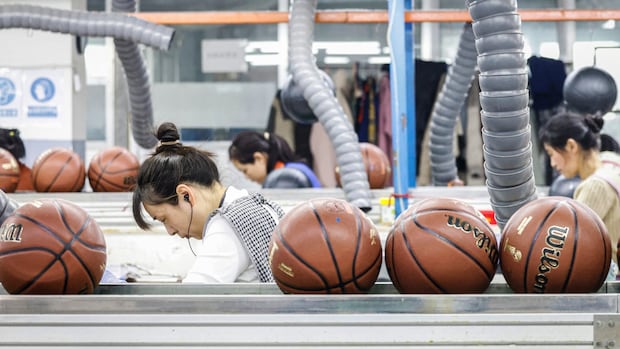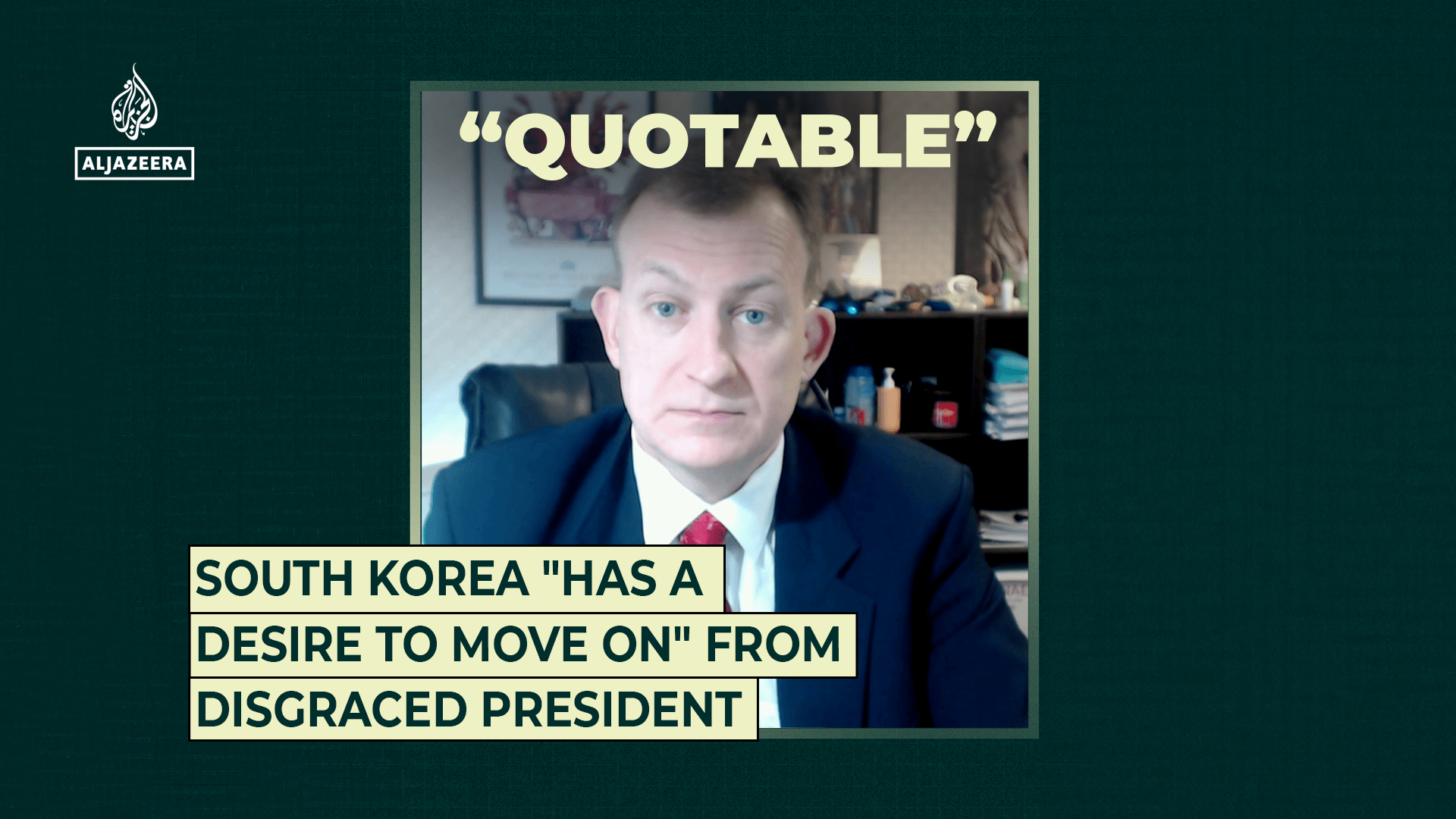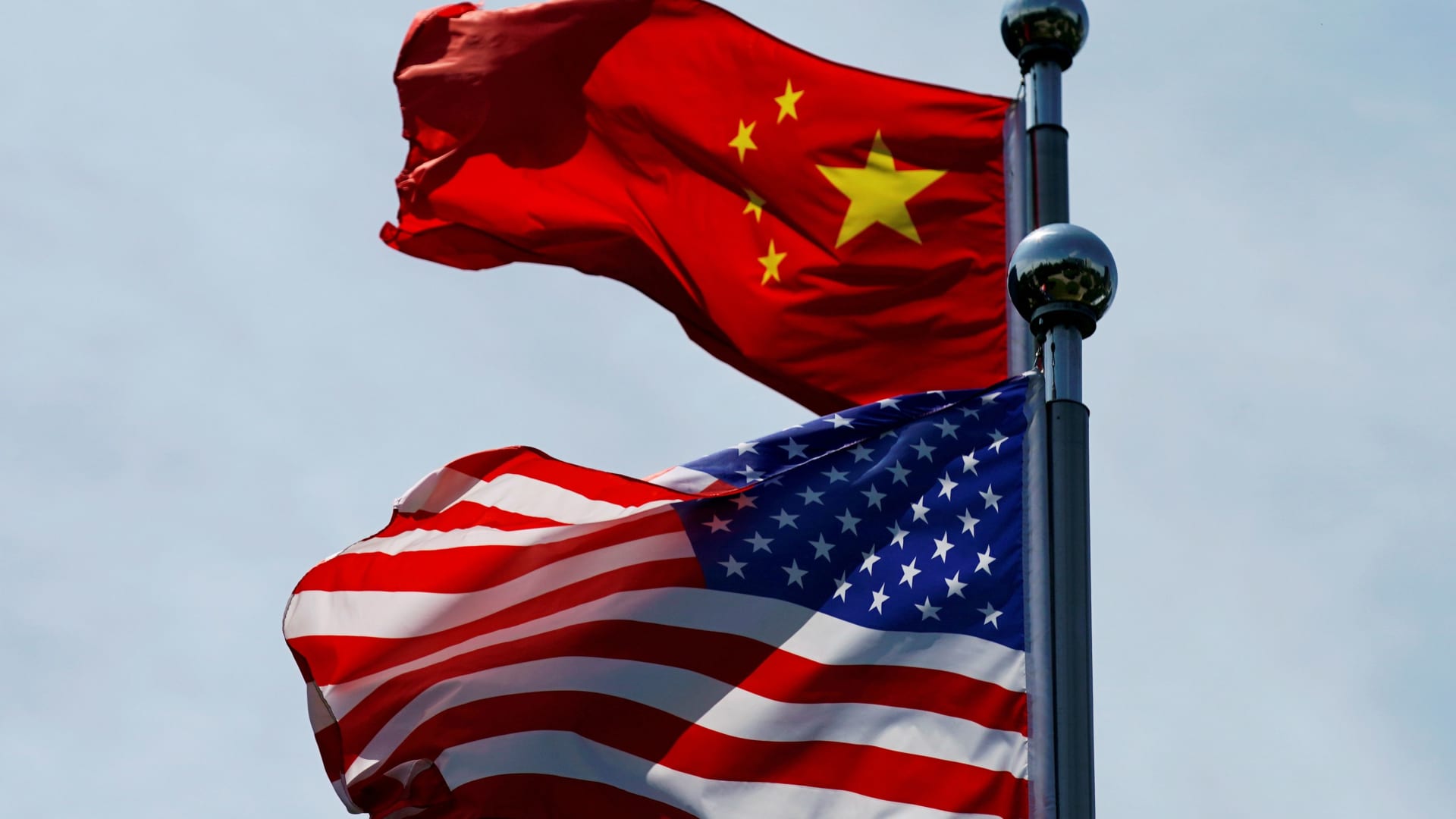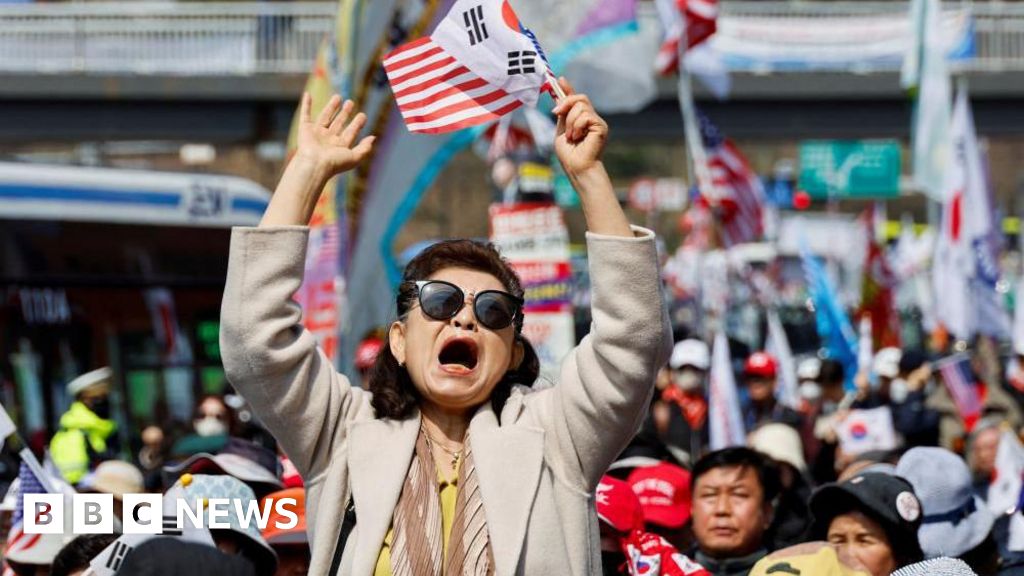Several Asian nations were launched on Thursday, as they were affected by some of the heaviest rates of United States President Donald Trump, who now threaten economies that have benefited from investment after Trump imposed rates on China during his first term.
Six of the nine Southeast Asian countries listed by Trump were shot down with much larger rates than expected between 32 percent and 49 percent Wednesday. In comparison, the level of the European Union was 20 percent and Japan of 24 percent.
So far, none of the South Nations -East Asian has talked about retaliation rates.
« Ultimately, dollar dollar rates are not feasible if you are a medium -sized or smaller economy, because then you are in a situation where you have done you significantly, » said Eric Miller, International Commercial Consultant and President of Rideau Potomac Strategy Group, talking to CBC’s’s Front burner Wednesday evening.
Front burner29:13Trump’s trade war is global
Vietnam among the most exposed
For many of the countries, there may be no other option than to press in the United States directly to obtain a more favorable rate.
The Vietnam, by one, shook hands with 46 percent of rates, requested conversations with Washington to reconsider « unfair » functions.
It is among several Asian exporters heavy in the United States, after obtaining the so -called « China more one » strategy, where manufacturers moved some production from China to countries near the region, which will be under tension.
After months of tariff ads and marinating reverses, the National breaks down as we have reached the « day of liberation » and what we know about the motivation of the President of the United States, Donald Trump, to increase world trade.
While China Plus One tended years ago with worrying about labor costs, it accelerated by geopolitical tensions between the two superpowers, which included Trump’s first-term rates aimed at Beijing, and also recriminations on the origins of Covid-19 Pandemic.
Vietnam, where companies like Apple, Nike and Samsung Electronics have large manufacturing operations, it is especially exposed. In addition to Nike, GAP clothing companies, Abercrombie, Adidas and Lululemon are based on 27 and 40 percent of their Vietnam goods, according to a Bloombg.com report.
Vietnam exports to the United States, at $ 142 million, the United States represented about 30 percent of its gross domestic product.
The suppliers of the Bangladesh clothing industry, which has GAP Inc. And Van Parent VF Corporation as customers, told Reuters that they began to search for government support hours after the Trump lightning. Bangladesh was hit with a 37 percent rate of the United States.
The Readymade’s clothing industry is of existential importance for the economy of Bangladesh, representing more than 80 percent of the total export results, which occupies four million people and contributes approximately 10 percent to their annual GDP.
Anwar -ul Alam Chowdhury, from the manufacturer of clothing, which has Tommy Hilfiger and Levi Strauss & Co. As clients, he says he fears India, who has since obtained more consultations from US suppliers Last year’s political crisis in BangladeshIt will now benefit even more as it faces a slightly lower Trump of Trump of 27 percent.
Asian textile producer Pain, North -American Central Win?
Another great south victim -Asian of Trump’s « reciprocal rate » is Sri Lanka, which is now facing a 44 percent rate.
About 40 percent of Sri Lanka’s clothing exports are in the United States, which helped the island nation gain $ 1.9 billion last year. Clothing is also Sri Lanka’s second largest currency winner; The sector employs 300,000 people.
Cambodia faces 49 percent rates that will harm their clothing and footwear industries.
« The ultimate goal is to promote investment in the United States, said Miller, the international commercial consultant.
If you couldn’t wish, it could also be desired from Washington’s perspective. Miller pointed to the most modest rates applied to Honduras and El Salvador, where the textile and clothing industries are important work creators.
« In essence, the underlying incentive is to promote the production of clothing in Central America, » he said.
Both Honduras and El Salvador, among other Latin American countries, seem to cooperate with the Trump administration in another of their declared priorities: to expel the illegal migrants, potentially keeping them in good favor with the administration.
Rates, China Key Executive Order to face —
For China, Trump’s tariffs could greatly stop a recovery in export, as Covid-19 was no longer considered an international emergency.
China was run over with a rate of 34 percent, in addition to 20 percent that it once imposed earlier this year, bringing the total number of new taxes to 54 percent and near the 60 percent figure that Trump had threatened during the campaign court.
Chinese exporters, such as those from other economies around the world, will face an initial rate of 10 percent, as part of the new amount of 34 percent, over almost all goods sent to the world’s largest consumer economy from Saturday before the rest, the largest « reciprocal rates » that enter from April 9.
The US average rate on Chinese goods will be 76 percent, according to Chad Brown, a senior scholarship at the Peterson Institute of International Economics and the Chief Economist of the State Department for the last year of the Biden administration.
In spite of, the numbers that appear, William Hurst, Chinese Professor of Chong Hua at Cambridge University, said that impacts on China will not be uniform.
« Trump’s rates will certainly not help Chinese companies and will cause real pain in some sectors, but they do not make a definitive mark in the Chinese economy, » said Hurst.
« North -Americans will promote more Chinese trade with other places, from Europe to South -East Asian and Africa, » he added.
Hurst’s unequal impact spoke on another measure that Trump signed on Wednesday, which closed a commercial lagoon known as Minimis, which has allowed China and Hong Kong low -value packages to enter the United States.
« The reason that has disappeared is because companies like Temu and Shein, founded in China, have become absolutely massive exporters directly from Chinese factories to North -American consumers and all of these goods have a value of less than $ 800, » Miller told CBC.
Taiwan feels superpower threats
For Taiwan, hit with a duty of 32 percent, Trump’s announcement arrived hours after the end of The last round of Chinese war games around Taiwan. Beijing claims that the territory is its own despite the objections of the Taipei government.
Taiwan’s exports and their major commercial surplus to the United States have increased due to the US demand for semiconductors and products related to artificial intelligence, as well as Trump’s rates and controls in China.
Taiwan houses the largest TSMC chip maker, who last month announced a new $ 100 billion investment in the United States.
U.S. rates, however, do not apply to semiconductors.
The Taiwan Cabinet said in a statement that he would look for clarifications and continue conversations with Washington.















Leave a Reply